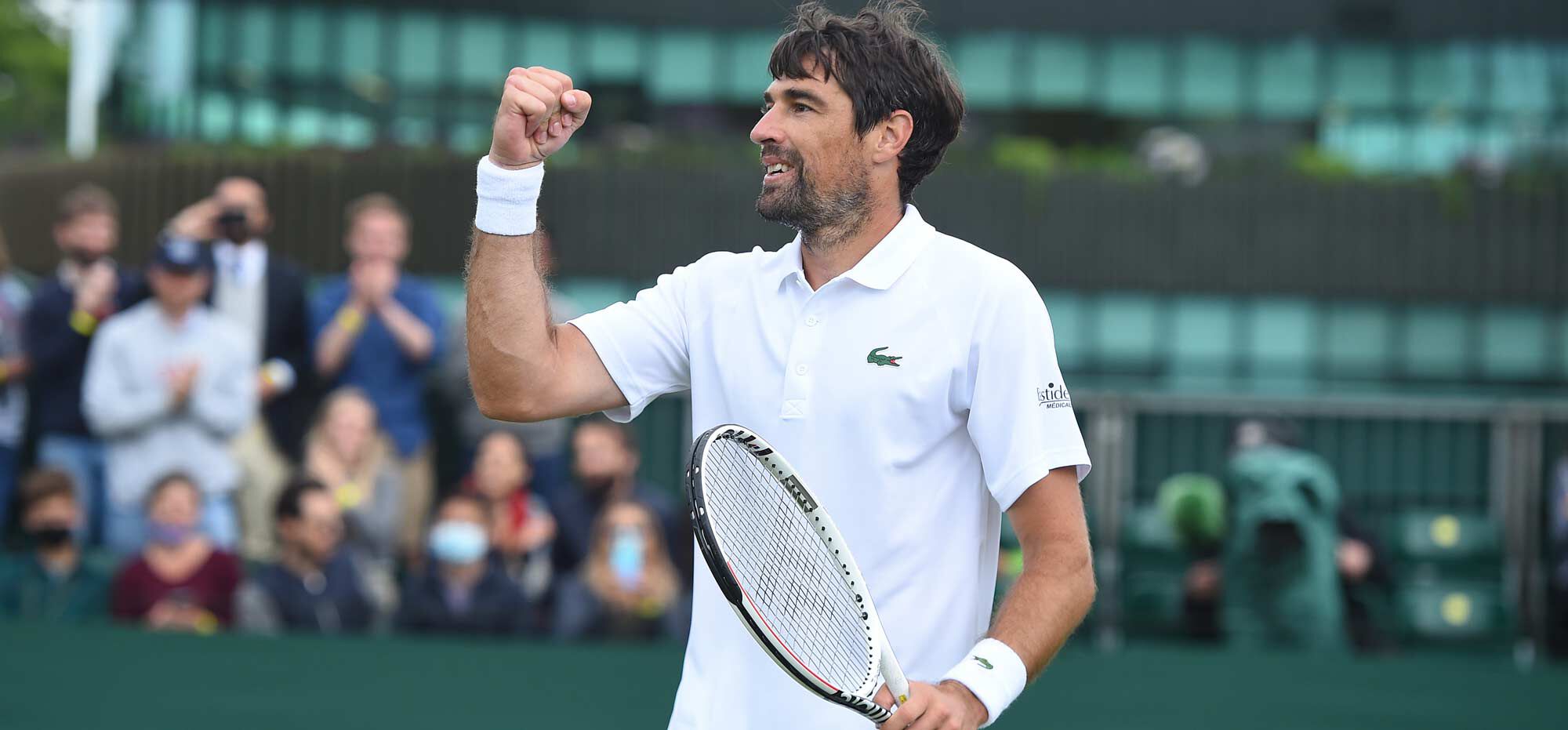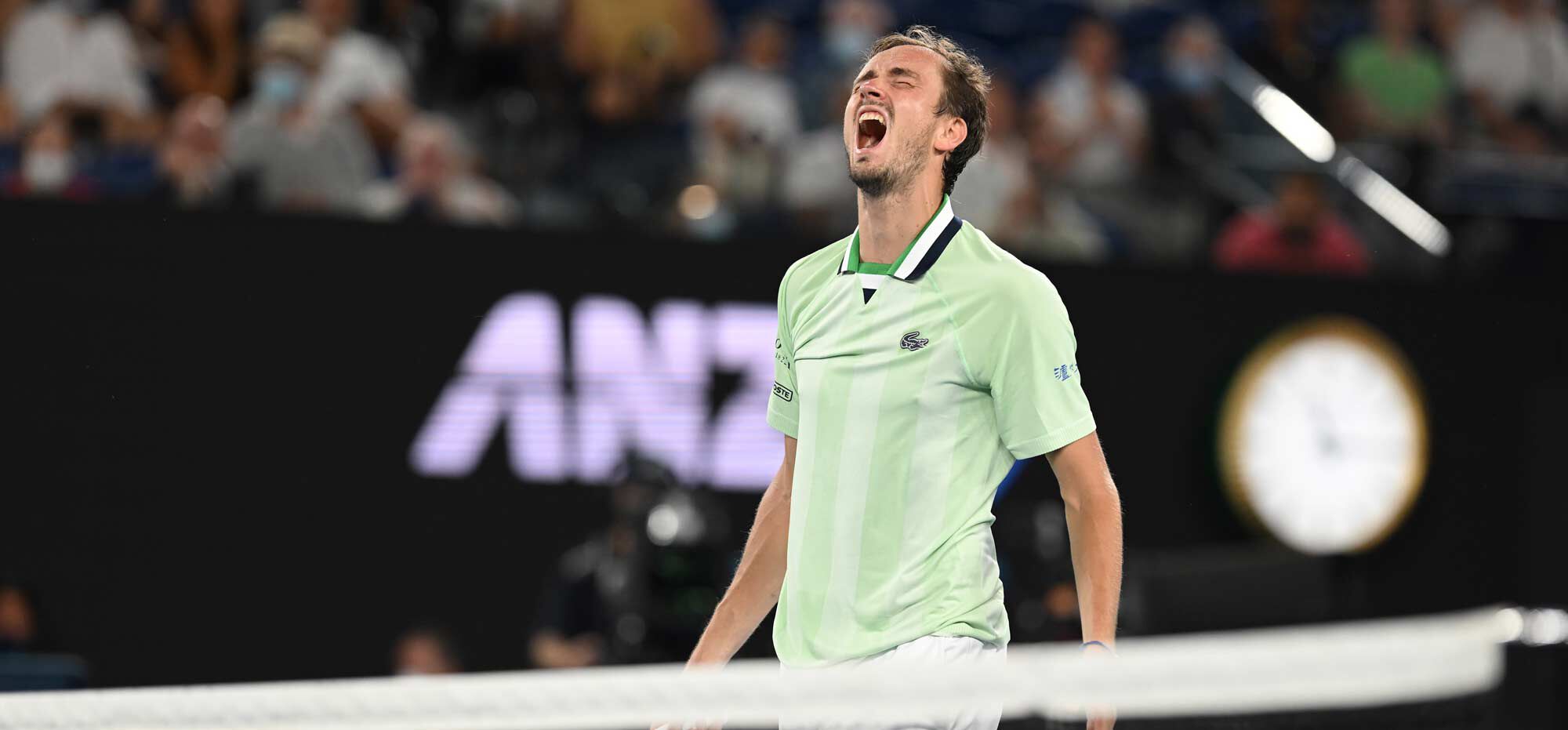3 Tips to become mentally strong by Technifibre
We have all asked ourselves this question: how to become a more mentally solid player? Tecnimag gives you some keys
One of the keys is to improve your concentration by being able to play all the points with intensity in a match.

The observation : concentration can greatly improve with method.
Contrary to what we think, we do not play all the points with the same intensity. Without realizing it, we are much more concerned with a game or set point than with a point played at 1-1 and 15A.
Other moments of the match can generate a drop in mental intensity.
After winning the 1st set, for example, there is often a relaxation which results in a few unforced errors or a complete exit from the match for a few minutes.
What about those periods of frustration or anger after an easy missed point or a successful hit by the opponent? In 2 minutes, you can get out of the game and find yourself leading 3/0 without having understood how.
Many players, at all levels, experience these kinds of concentration drops without knowing how to improve on this aspect of their performance. A first step is to become aware of these drops in intensity, of these easy match periods for your opponent. This will allow for a better analysis of unforced errors and bad choices made during the match that led to a drop in concentration.
The solution: learn to condition your mind on the court without being outside, simply by stepping out of your comfort zone a little more each day.
3 keys to progress:
1ST KEY: DEFINE DEVELOPMENT OBJECTIVES
1/ Questions to ask
To get off to a good start, you must above all ask yourself the right questions, and answer them sincerely, after having taken the time to reflect.
- Why am I training?
- Why am I competing?
- What are my medium and long term goals?
These questions may at first glance seem simple. They are, however, much deeper than they appear.
And the answers to these questions lead to the decisions needed to intelligently build the right project.
2/ Defining your objectives: the method
A good goal must be ambitious, but also remain achievable. What could be more daunting than a quest that seems unattainable?
The progression is done in stages, and the objectives respond to the same logic.
You can therefore define short, medium and long-term objectives to support your progress.
CONCRETE EXAMPLE OF A METHOD FOR DEFINING OBJECTIVES
Situation :
You are 15/5 and want to pass 2nd series? Perfect !
- Potential short-term goals: analyze your strengths and weaknesses (physics, technique, volley, baseline, etc.) to establish playing patterns that suit you
- Potential medium-term objective: Climb 15/3 by having adapted your game plan to your preliminary analyzes
- Long-term objective: Pass second series
Some best practices:
Remember to write your goals black on white and record your progress. This step will help you make them more concrete and real
Write down your goals in positive terms so that it's a challenge, not a chore.
It is important to set performance goals and not just results. Sometimes sticking to a game plan is more important than winning. That's what could help you win all the following ones!
2ND KEY: BE MORE CONSTANT DURING TRAINING
1/ Learn not to accept making mistakes in training
Very often, we make a lot of mistakes in training without being disturbed more than that. While, paradoxically, these same faults drive us mad in matches. The idea here is to reverse the process, not to accept faults in training but, on the other hand, to be more tolerant of yourself in matches.
It is essential to have a precise intention on each strike. I play a zone on each ball with a ball speed / spin / trajectory quality that I choose.
At each fault, you have to say "NO" and immediately make the effort on the next ball, especially on the footwork in order to absolutely put the ball in the court. If you are more demanding on your placement you will considerably reduce the faults.
90% of unprovoked faults are the consequence of a bad process:
- I play without a real intention
- My placement is not accurate
- The shot played lacks commitment
Playing a whole practice with just 2 balls will push you to change your habits and get out of your comfort zone.
2/ Learn to chain the right series
It is common to relax after a good game, a good set and to stupidly drop points to your opponent for lack of "presence".
What to do in training?
A good point, a good series should make you want to reproduce these good sequences.
Becoming able to reproduce 2 times, then 3 times then 10 times a good shot requires a specific effort of concentration. Identifying a repetition objective, trying, failing, starting over is the process that will allow you to gain "presence".
Service work is a great way to strengthen your ability to replicate good runs. You choose an area in the service square according to your level and you seek to play 10 times in a row in the area. With each error you start from 0.

3RD KEY: IMPROVE YOUR SOLIDITY IN MATCH
1/ Getting closer to the Ideal State of Performance (EIP)
The ideal state of performance is defined by 5 main elements:
- A form of amnesia that leads the athlete to play almost automatically, instinctively.
- A concentration / dissociation component which means that the athlete is totally centered, focused on his competition, disregarding everything external.
- A detachment from pain that causes the athlete to increase their pain tolerance.
- A perceptual change that is defined by manifestations of trance, distortion of time, distortion of reality.
- A great feeling of power and control.
This state is the dream of all tennis players, and all sports practitioners in general.
And if it is difficult to achieve in absolute terms, it is possible to set up the elements to try to get closer to it as often as possible.
OUR 10 PRACTICAL TIPS TO GET CLOSER TO THE IDEAL STATE OF PERFORMANCE:
During the match
- Remember to breathe well, deeply and regularly, in order to manage fatigue and stress
- Always stay focused on the present moment. Do not think about external things and problems, which have no place during the game
- Set up small routines (not necessarily as much as Rafael Nadal) to immediately focus on the next point
- Focus on the positives. Did you make a gross foul on your forehand? Remember especially the very good previous forehand, which allowed you to make the difference
- Optimize rest and recovery times between points to stabilize yourself physically and emotionally
Before and after the game
- Write down your objectives for this match in writing (game plan, emotional management, etc.)
- Take 10 minutes to relax and try your hand at mental visualization (how to perform a gesture, a tactical sequence, how to handle a break point…)
- Warm up thoroughly (joints, muscles) in order to arrive as ready as possible on the court
- Take stock of your match by reviewing your starting notes to check that you have met your objectives. Each match, whether it ends in defeat or victory, must above all be an apprenticeship for the next one!
- Surround yourself with positive people who share your project and your goals
2/ Learn to break negative spirals
We have all suffered series of points, games with a negative attitude of frustration and anger etc… What process should we engage in to get out of this bad spiral? In these moments of tension, the solution to get out of it is to find something positive, like a little light that will illuminate a new path.
How to do in game?
If I'm in the first set, for example, and I'm playing badly, you have to tell yourself that the match is far from over and accept that you weren't good at the start of the match.
The 2nd set is a new challenge to relax. It's a chance that I'm going to take to show what I'm capable of by playing this chance to the fullest!
Learning to look for a little positive light when things are going badly on the court should help you move on and get out of a moment of frustration.
It is a process of coming back to the present and clearing away frustration in order to move forward. I just landed a good forehand, I won a difficult rally, my opponent made a lot of backhand faults, a little light warmed my heart and I was able to get back into the game.
The habit of having clear intentions in my shots, the ability to be “present” on the court at all times, the capacity for resilience in matches and getting out of moments of frustration are performance levers.
Just as becoming technically or physically strong takes time and requires quality work, becoming mentally strong is a long process.
Get out of your zone of confidence to get to know yourself better!

